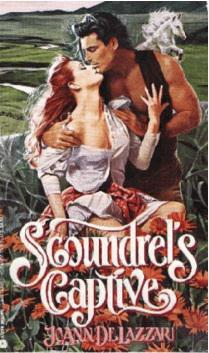 Yesterday’s post about the gang rape of an 11-year-old Texas girl received the highest number of hits ever recorded on AngelSpeak. I don’t say this with any amount of celebration. But it does raise a question that I think is relevant to the topic of this blog: are writers encouraging a rape culture? Are we, in some way, responsible for the atrocious acts that are committed against women every day?
Yesterday’s post about the gang rape of an 11-year-old Texas girl received the highest number of hits ever recorded on AngelSpeak. I don’t say this with any amount of celebration. But it does raise a question that I think is relevant to the topic of this blog: are writers encouraging a rape culture? Are we, in some way, responsible for the atrocious acts that are committed against women every day?
I used popular fashion advertising to make my point yesterday. Like it not, deny it if you will, but we have a rape culture in this country. As Roxane Gay said in her posting on The Rumpus:
The casual way in which we deal with rape may begin and end with television and movies where we are inundated with images of sexual and domestic violence. Can you think of a dramatic television series that has not incorporated some kind of rape storyline?…Every other movie aired on Lifetime or Lifetime Movie Network features some kind of violence against women. The violence is graphic and gratuitous while still being strangely antiseptic where more is implied about the actual act than shown. We consume these representations of violence and do so eagerly…While once rape as entertainment fodder may have also included an element of the didactic, such is no longer the case. Rape, these days, is good for ratings.
Of course, we know it is not only in television and movies that gain audiences through incorporating the stories of violence against women. Clearly it is also deeply ingrained in our advertising as well as in the music we listen to:
Where does literature fall? In “Reading Hurt: The Rape Scene in Literature,” Jaramillo notes:
The relationship between “seduction” and “romance” is coded in the romance genre in very specific terms, according to literary scholar Janice A. Radway. In her cornerstone study Reading the Romance(1984), Radway examined these commercial texts, as well as the publishing houses that produce them. She reports that “what one reader called ‘a little forceful persuasion’” would not necessarily be objectionable in this genre, if the readers give credence to the author’s “attempt to show that the hero’s sexual sway over the heroine is always the product of his passion and her irresistibility” (75). In fact, Radway found that:
one publishing house understands this quite well, for in its directions to potential writers it states that rape is not recommended but that one will be allowed under specific conditions, if the author feels it is necessary to make a point.(14) Should a rape occur “between the heroine and the hero,” the directions specify, it must “never be initiated with the violent motivation that exists in reality” because “a woman’s fantasy is to lose control” with someone who really cares for her. “A true rape” can be included only if “it moves the story forward” and if it happens to someone other than the heroine. (75)
The question remains: are we responsible (too)? What obligations do writers have to speak out on the topic of violence against women? What obligations do we have to treat such material with respect to victims? What impact does it have when we choose to write a rape scene? And should that impact our decision to include it in our work?

